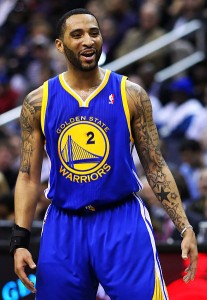While there was conclusively too much data to sift through and discover breakthrough patterns from such little time, I was able to ascertain that every great point guard in the NBA who lacked elite athleticism out of school (sorry Westbrook, Rondo, and Rose), became great in the NBA because they did two things extremely well in college: take good care of the ball and keep defenses honest on the perimeter with a strong jump shot. Sure, scoring, rebounding, assisting, and steals were all somewhat important. However, when it came to the most indicative stats, Assist to Turnover Ratio and True Shooting % reigned supreme.
Using this knowledge, I then made a second spreadsheet with a smaller sample size. In this second spreadsheet, I took six former college superstars who were all drafted in the first rounds of recent drafts. I then compared these players’ college stats, videos, and combine results to Trey Burke’s.
What I eventually came up with was a tier system of players whose transcendent college talents translated to varying degrees of success in the NBA. I analyzed a superstar (Chris Paul), a star (Mike Conley), a starter (Jeff Teague), a sixth man (Jarrett Jack), a backup (DJ Augustin), and a bust (Acie Law). 
While Burke likes to compare himself to Chris Paul in interviews, I had been quietly fearful of Burke’s game translating more directly to Law’s.
What I did not realize until after the study was that Law entered the draft at 22 years old. Because Burke is two full years younger, he has much more room for growth upon entering the NBA than Law ever did. Overwhelmingly, my findings supported the notion that the younger a point guard is at the time of declaration, the more likely he is to develop into a star.
The first (and easiest) thing I set out to do was prove that Burke’s size will have little determination of how he fares at the next level.
| Player | Height |
| Chris Paul | 6’1” |
| Mike Conley | 6’0.75” |
| Jeff Teague | 6’1.5” |
| Jarrett Jack | 6’3.5” |
| D.J. Augustin | 5’11.5” |
| Acie Law | 6’3.5” |
| Trey Burke | 6’1.25” |
As you can see, contrary to popular belief, Burke’s height will not be the “end all, be all” to his career. Plenty of successful point guards are shorter. Moreover, at 187 pounds, Burke is coming into the league a full 10 pounds heavier than Paul, Conley, or Teague did.
great analysis, although i disagree about the conclusions. Burke’s game in college is one thing…….he cant do those things in the NBA because he lacks a top gear. This is the problem for DJ augustin for example, and for guys like devan harris and mo williams. If you are a six foot pg, you have to accelerate….ty lawson does that, kemba even does that, conley does that (not as well as one might wish)……or guys are just out there with defense in mind first…Rondo, or both like chris paul. Burke strikes me as smart, efficient, but not likely to score effectively at the pro level…..AND most problematically, he is going to struggle on defense. His lack of lateral quickness is pretty glaring.
Denzel Valentine scored 5 ppg and shot 28% from three. That’s good help, Valentine just happened to make a shot. Other than that good article, I agreed with much of it.
Really great article. Good stuff my man.